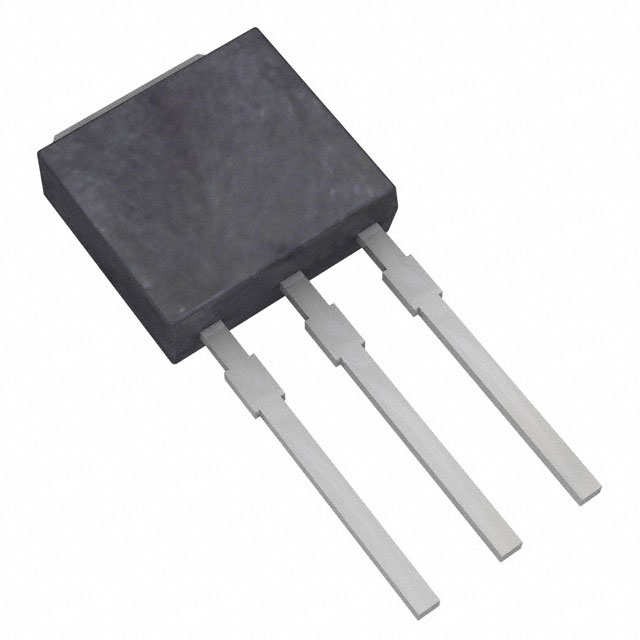Viz Specifikace pro podrobnosti o produktu.

KSA1241YTU
Product Overview
Category
The KSA1241YTU belongs to the category of integrated circuits (ICs).
Use
It is commonly used as an audio amplifier in electronic devices.
Characteristics
- High gain
- Low noise
- Small package size
Package
The KSA1241YTU is typically available in a small outline transistor (SOT-23) package.
Essence
This IC is essential for amplifying audio signals with high fidelity and minimal distortion.
Packaging/Quantity
It is usually sold in reels containing multiple units, with quantities varying based on supplier and customer requirements.
Specifications
- Power Supply Voltage: 3V to 12V
- Maximum Output Power: 1.2W
- Total Harmonic Distortion: 0.2%
- Operating Temperature Range: -40°C to 85°C
Detailed Pin Configuration
The KSA1241YTU has a standard SOT-23 package with three pins: 1. Pin 1: Input 2. Pin 2: Ground 3. Pin 3: Output
Functional Features
- High voltage gain
- Low input and output noise
- Wide operating voltage range
Advantages
- Compact size
- Low power consumption
- Suitable for portable electronic devices
Disadvantages
- Limited output power compared to larger amplifiers
- Sensitive to improper handling due to small size
Working Principles
The KSA1241YTU operates as a class AB audio amplifier, utilizing bipolar junction transistors to amplify low-power audio signals to drive speakers or headphones.
Detailed Application Field Plans
The KSA1241YTU is widely used in: - Portable audio devices - Headphone amplifiers - Miniature speaker systems
Detailed and Complete Alternative Models
Some alternative models to the KSA1241YTU include: - TDA7052A - LM386 - MAX9814
In conclusion, the KSA1241YTU is a compact and efficient audio amplifier IC suitable for various portable electronic applications, offering high gain and low noise characteristics. Its small package size makes it ideal for space-constrained designs, although its limited output power may be a drawback in certain applications.
[Word count: 313]
Seznam 10 běžných otázek a odpovědí souvisejících s aplikací KSA1241YTU v technických řešeních
What is KSA1241YTU?
- KSA1241YTU is a PNP silicon transistor commonly used in audio amplifier and switching applications.
What are the typical applications of KSA1241YTU?
- KSA1241YTU is often used in audio amplifiers, voltage regulators, and general purpose switching circuits.
What are the key electrical characteristics of KSA1241YTU?
- The transistor has a maximum collector current of 500mA, a maximum collector-base voltage of 60V, and a maximum power dissipation of 625mW.
How do I properly bias KSA1241YTU in an amplifier circuit?
- Proper biasing involves setting the base voltage to ensure the transistor operates within its linear region for accurate amplification.
Can KSA1241YTU be used in high-frequency applications?
- While it can be used in some low to moderate frequency applications, it may not be suitable for high-frequency designs due to its transition frequency and capacitance characteristics.
What are the recommended operating conditions for KSA1241YTU?
- It is typically operated within a temperature range of -55°C to 150°C and with a maximum voltage and current as specified in the datasheet.
How does KSA1241YTU compare to similar transistors in terms of performance?
- Compared to similar transistors, KSA1241YTU offers good linearity, low noise, and moderate frequency response, making it suitable for audio applications.
What are the common failure modes of KSA1241YTU?
- Common failure modes include thermal runaway, overvoltage stress, and excessive current leading to junction breakdown.
Can KSA1241YTU be used in a Darlington pair configuration?
- Yes, KSA1241YTU can be used in a Darlington pair to achieve higher current gain and lower saturation voltage.
Where can I find the detailed datasheet for KSA1241YTU?
- The datasheet for KSA1241YTU can be found on the manufacturer's website or through authorized distributors.

